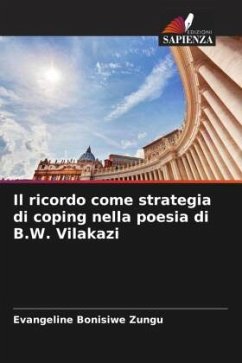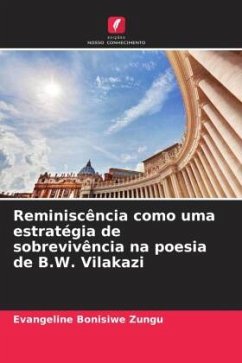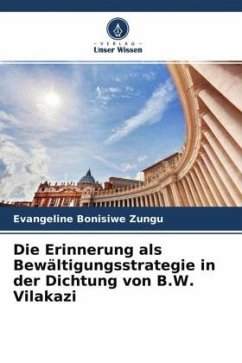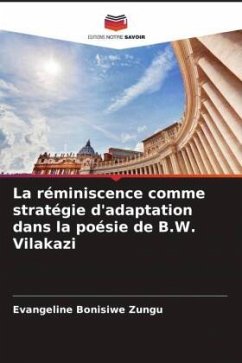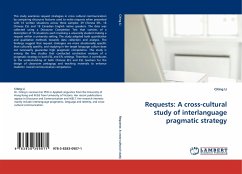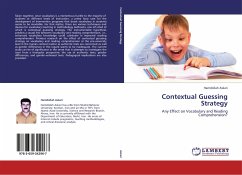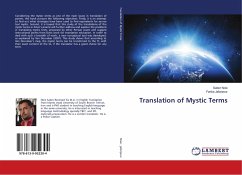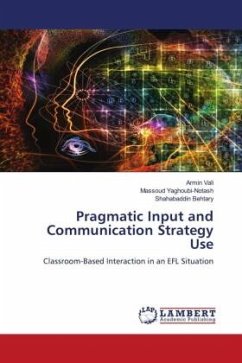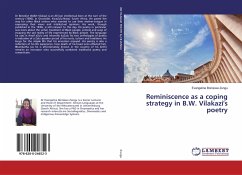
Reminiscence as a coping strategy in B.W. Vilakazi's poetry
Versandkostenfrei!
Versandfertig in 6-10 Tagen
25,99 €
inkl. MwSt.

PAYBACK Punkte
13 °P sammeln!
Dr Benedict Wallet Vilakazi is an African intellectual born at the turn of the century (1906), in Groutville, KwaZulu-Natal, South Africa. He paved the way for other Black writers who wanted to use their mother-tongue in expressing their views and intellectual opinions. His work, though published in the 1930s, is still relevant to this day. His poetry in particular was more about the unfair treatment of Black people, protest and ways of escaping the sad reality of life experienced by Black people. The language he uses in Amal' eZulu and Inkondlo kaZulu his two anthologies of poetry is indicati...
Dr Benedict Wallet Vilakazi is an African intellectual born at the turn of the century (1906), in Groutville, KwaZulu-Natal, South Africa. He paved the way for other Black writers who wanted to use their mother-tongue in expressing their views and intellectual opinions. His work, though published in the 1930s, is still relevant to this day. His poetry in particular was more about the unfair treatment of Black people, protest and ways of escaping the sad reality of life experienced by Black people. The language he uses in Amal' eZulu and Inkondlo kaZulu his two anthologies of poetry is indicative of a Zulu speaker proud of his roots, culture and traditions. He longs for the simple life that his ancestors enjoyed. His poetry is also a reflection of his life experience, how death of his loved ones affected him. Bhambatha (as he is affectionately known in the country of his birth) remains an innovator who successfully combined traditional poetry and romanticism.



